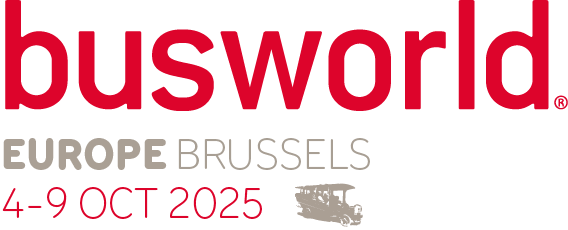Van Hool can breathe again after pandemic
Van Hool's latest touring coach, the 24-metre-long T Astron, is on display in Palace 5 at Busworld. A top product that expresses the Belgian coachbuilder's vitality. Top executive Filip Van Hool is breathing a sigh of relief after several difficult years. One more push and the Belgian company will be back on track next year
A three-year crisis deeply disrupted the world of coachbuilders. Covid,, energy, inflation were a severe blow to the family business in Koningshooikt that now employs 2,350 workers. Sales were at a complete standstill from 2020 until after the first half of 2022. Only in the past 12 months did it really revive.
'The market is recovering, which is a relief.' But not everything is running smoothly. With supply disrupted by an unpredictable China, US protectionism and imminent electrification, the challenges remain many,' says Filip Van Hool.
In a normal year, Van Hool sells between 1,000 and 1,200 buses and coaches. In 2020, that number dropped to 547, and in 2021 barely 190 were sold. Last year, sales climbed to 524. And the figures for this year look promising. More cars have already been sold than factored in, and for 2024 it is half that. In 2025, the group expects to sell some 1,000 vehicles again.
Van Hool continues to profile itself as the customisation specialist. 'Identical buses do not exist with us. That is our great asset. Our teams practically act as architects for the customer,' stresses the top executive. 'A vehicle can be assembled completely according to your choice. A special case for bikes is popular for commuting in the US, where young workforces travel by bike on the giant tech campuses. And in luxury tourism, coaches are increasingly equipped with kitchens. The ground floor is almost like a small bistro. But also lifts for wheelchair users or modular toilet cabins, anything is possible,' says Filip Van Hool
Transition
The Belgian manufacturer is also pushing the transition to electric vehicles here and overseas. 'We were the first to market a 100 per cent electric double-decker in the United States. It contains a battery with a range of up to 500 kilometres. By 2022, about 100 electric coaches were delivered in the US. I am very excited that we have always continued to invest in that innovation.' To continue penetrating the US market, plans are on the table for a plant in Tennessee, which would be built based on the model of the one in Skopje.
In Europe, Van Hool will only make zero-emission vehicles for transport companies. The demand for electric coaches is not present yet. The Kempen manufacturer is not unhappy about that. 'When I think of the trouble we've had with the disrupted supply chain, I don't think it's a bad thing that zero-emission vehicles are still a minority of our portfolio for now. It is not yet profitable for customers to drive electric. You can't make a bus full of tourists wait four hours in a car park because you need to recharge your bus,' concludes the manager.

